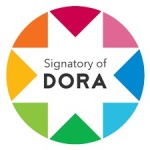A study of the relationship between empowerment and creativity of workers in Algerian institutions: case study of a sample of workers of the Algerian Directorate of Telecom in Laghouat
Abstract
his study aims to clarify the role of empowerment in the development of creativity among employees, through highlighting the contemporary administrative concept of empowerment supported by organizations and adopted by the management strategy in order to achieve goals more efficiently and effectively, in addition to briefing the subject of creativity and the pursuit of organizations to develop and get interested in it as a way to lead in the business world. Also, it has been dropped what has been presented in the theoretical side in the practical directorate of Algeria Telecom institution (Laghouat), and we have based to achieve this on a questionnaire which was distributed to a random sample of workers in the organization estimated (53) person, in addition to an interview with the heads of departments and services. After the analysis of data collected using statistical methods with the program Spss19 and Excel 2007, we came to a set of conclusions and recommendations, and it was the most important: the direction of the sample towards the approval of the existence of empowerment organization despite the absence of participating in decision-making, work teams, training, effective communication, motivation, efficiency and competence, also the sample turned towards accepting the existence of creativity among workers. To arrive in the latter that there is a direct correlation statistically significant between the empowerment and development of creativity among workers in the practical directorate of Algeria Telecom (Laghouat) at the level of significance (5%), and the study concluded a series of recommendations, including: the need to activate empowerment in the nominally six, namely: participation in decision making, work teams, training, effective communication, motivation, efficiency and competence. addition to working to strengthen a culture of empowerment and creativity in the enterprise.
Downloads
References
-حسام الدين خليل حرب(2010)، أثر المتغيرات الشخصية والتنظيمية على واقع تفويض السلطة لدى القيادات الإدارية (دراسة تطبيقية على الوزارات الفلسطينية)، رسالة ماجستير غير منشورة، الجامعة الإسلامية، غزة، ص26.
-حنان رزق الله (2010)، أثر التمكين على تحسين جودة الخدمة التعليمية بالجامعة (دراسة ميدانية لعينة من كليات جامعة منتوري قسنطينة)، رسالة ماجستير غير منشورة، جامعة منتوري، الجزائر، ص26.
-جمال خير الله (2009)، الإبداع الإداري، ط1، دار أسامة للنشر والتوزيع ,عمان، ص8.
-جهاد بن محمد الرشيد (2003)، إدارة الوقت وعلاقتها بضغوط العمل، رسالة ماجستير غير منشورة، أكاديمية نايف العربية للعلوم الأمنية، السعودية، ص 2.
-زكرياء مطلك الدوري وأحمد علي صالح(2008)، إدارة التمكين واقصاديات الثقة، دار اليازوري،عمان ، ص 76-77.
-زياد أبو موسى وناصر مراد(2011)، مداخلة بعنوان: "واقع الإبداع في المؤسسة"، الملتقى الدولي حول: الإبداع والتغيير التنظيمي في المنظمات الحديثة، جامعة سعد دحلب بالبليدة، الجزائر ، ص3.
-سليم ابراهيم الحسنية(2009)، الإدارة بالإبداع نحو بناء منهج نظمي،المنظمة العربية للتنمية الإدارية,مصر، ص7.
-محمد ذيب المبيضين ومحمد أحمد الطراونة(2011)،"أثر التمكين في السلوك الإبداعي لدى العاملين في البنوك التجارية الأردنية",مجلة العلوم الإدارية للجامعة الأردنية، العدد 38، المجلد2, ص480-505.
-محمد زويد العتيبي(2007), الطريق إلى الإبداع والتميز الإداري، ط1، دار الفجر, مصر، ص28.
-محمد مفضي الكساسبة وعبير حمود الفاعوري(2009)، قضايا معاصرة في الإدارة، ط1، دار الحامد للنشر والتوزيع، عمان، ص 128.
- محمد فلاق وقدور بن نافلة،"أثر التمكين الإداري في إبداع الموظفين(دراسة حالة لمجموعة الإتصالات الأردنية (Orange))، ص 7.
-عاكف لطفي خصاونة(2001)، إدارة الإبداع والابتكار في منظمات الأعمال، ط1، دار الحامد للنشر والتوزيع، عمان ,ص33.
-عبد الإله بن ابراهيم الحيزان(2002)، لمحات عامة في التفكير الإبداعي،ط1، مكتبة الملك فهد الوطنية،السعودية, ص21.
-عبد الرحمان محمد العيسوى(2007)، الإدارة في عصر العولمة، ط1، مصر، دار الفكر الجامعي، ص134.
-لاحق بن عبد الله القحطاني(2007)، الإبداع الإداري ومعوقاته في الأمن العام بمدينة الرياض، رسالة ماجستير غير منشورة، جامعة نايف العربية للعلوم الأمنية، السعودية، ص11.
Fangqi Xu and Tudor Rickards(2007) ,Creative management :a predicted development from research into creativity and management , Journal compilation, volume 16, p218
Dictionary of Human Ressource and Personnel Managment(2006), 3rd ed, London , p: 90.
Jason A.Colquitt, Jeffery A.Lepine and Michael J.Wesson(2013), Organizational Behavior, 3rd ed, Mc Graw Hill, New York, P:181.
Joseph Schumpeter (2012),the theory of economic development,16 ed, p:xx.
Manuel Mendonca and Rabindra N. Kanungo(2007), Ethical Leadership,1st ed, Mc Graw Hill, New York, P:63.
William Oncken.jr and Donald L.Wass(1999), Management time: Who’s got the monkey?, Harvard Business Review , Vol 3928, p2.
Fangqi Xu and Tudor Rickards(2007) ,Creative management :a predicted development from research into creativity and management , Journal compilation, volume 16, p218.

This work is licensed under a Creative Commons Attribution-NonCommercial 4.0 International License.















